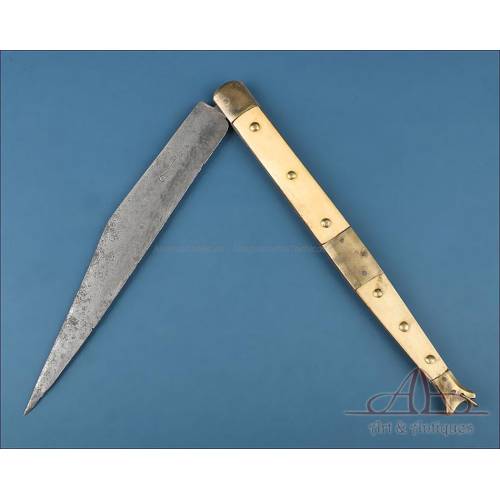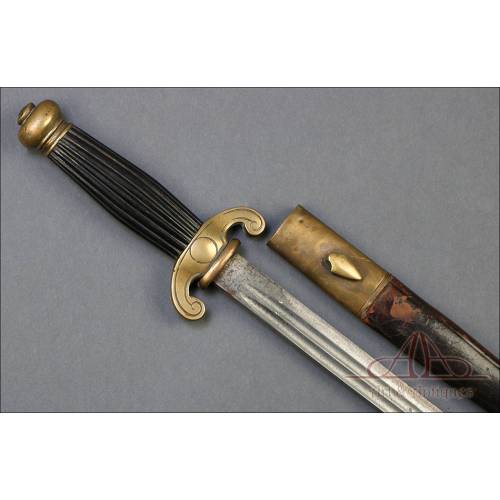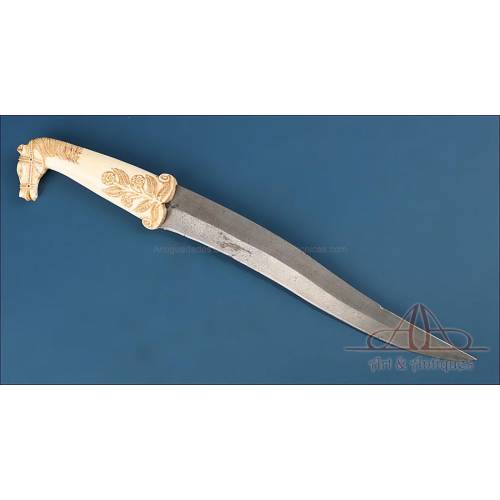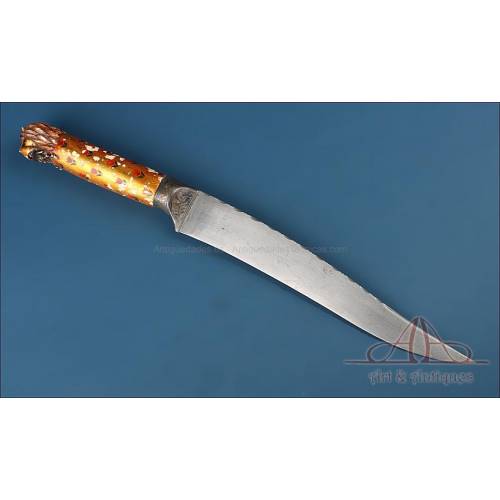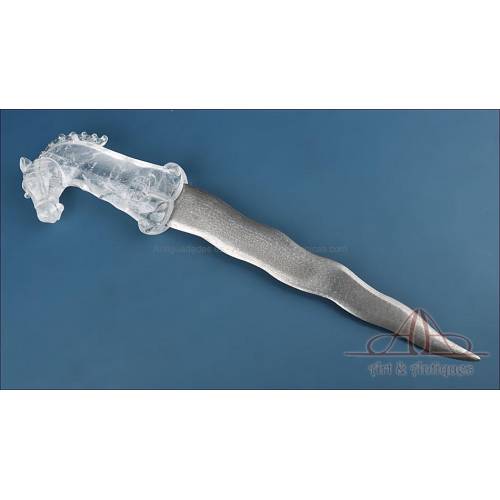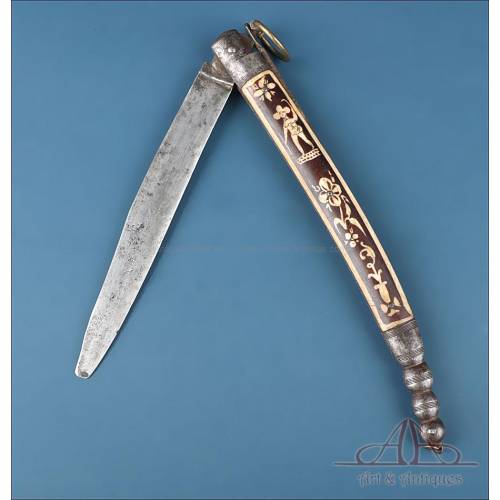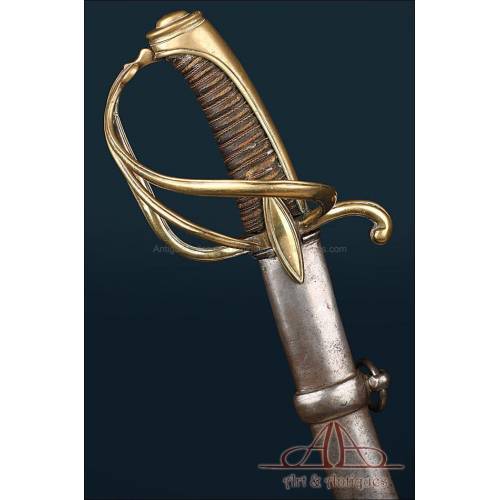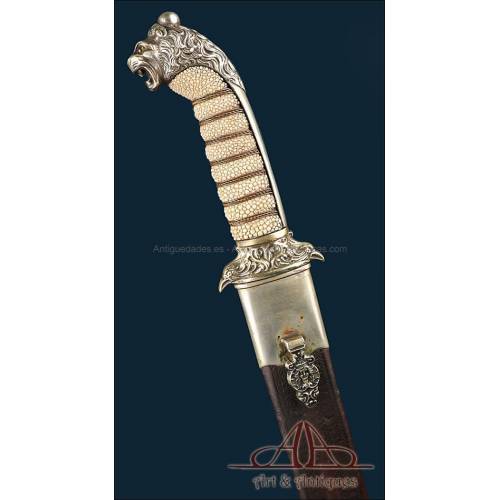D-922
Antique French Navaja or Pocketknife by Coutaret. 16.93 in. 19th Century
Simple and antique pocketknife signed by Coutaret. Made in the 19th century. In good condition.
Antique French Navaja or Pocketknife by Coutaret. 16.93 in. 19th Century
This impressive and stylized 19th-century French folding knife, signed by the manufacturer COUTARET, is an authentic testimony to the utilitarian design of the era, with a perfect balance between functionality and aesthetics. With a total length of 43 cm when open and 23 cm when closed, this piece stands out both for its dimensions and for the harmony of its materials.
The handle, made of bone or horn plates in an ivory-white tone, brings a sober and natural elegance that has withstood the passage of time with dignity. The scales are solidly riveted with brass pins, a classic detail that ensures firmness and durability. The metal reinforcement at the lower end acts as a butt cap and includes a small ring of the same metal, possibly intended for passing a strap through or simply as a decorative finish. Each brass segment between the plates contributes not only to the aesthetics but also to the robustness of the handle.
The blade, large and of the clip point design or “cut-off tip,” is a true icon of the style of large combat or civilian defense knives from the 19th century. Forged in steel with a natural patina, it shows the passage of time without losing its integrity. On one side, the “COUTARET” stamp is still clearly visible, accompanied by the symbol of a staff — a French mark that is historically difficult to trace but widely recognized for its distribution in Spain during the 19th century. Knives of this type imported from France and later redistributed by Spanish houses such as Valero Jun., very active at the time, were not uncommon.
Despite being over one hundred years old, the piece is in excellent condition. The blade shows signs of superficial oxidation and marks of use, which, far from detracting value, reaffirm its authenticity and character. The scales, complete and without fractures, retain the original design and a strong presence, typical of a prestigious tool.
This type of knife was used both for everyday tasks and in personal defense situations, so its robustness was crucial. Today, they are highly valued by collectors for their uncommon size, precise craftsmanship, and the quality of their materials. It is ideal for those looking for a piece with history to add to an antique cutlery collection, as well as for those seeking a unique object with great decorative potential in rustic or vintage settings.
A unique piece, full of history and presence, ready to be proudly displayed in any showcase or collection.
Dimensions: 43 cm open, 23 cm closed (16.93 in / 9.06 in).
History of Coutaret
The Coutaret brand, whose signature appears engraved on the blade of this knife, belongs to the French cutlery tradition of the 19th century, a time of notable expansion in the production and export of knives from France to all of Europe, including Spain. Although historical records do not contain much specific information about this manufacturer, it is known that Coutaret was part of a group of workshops located mainly in Thiers, the city that has for centuries been the heart of French cutlery. Knives marked with this name arrived in our country in large quantities, often in batches that were later redistributed by Spanish brands.
During the 19th century, the demand for cutlery increased considerably due to the boom in rural activities, the expansion of the railways, and the need for practical and effective personal tools. Knives like this one, large and with pointed and resistant blades, were ideal both for fieldwork and personal defense. Furthermore, French designs were highly appreciated for their balance between sobriety and style, which facilitated their acceptance and marketing in neighboring countries. Brands like Coutaret were recognized not only for the quality of their blades but also for their functional finishes, with well-executed rivets and blades with good heat treatments.
Many times, these knives were purchased by Spanish merchants and relabeled, being sold in traditional cutlery shops under national brands. The Valero Jun. firm, for example, was one that frequently acquired French pieces and marketed them as its own. Today, collectors deeply appreciate this type of piece both for its quality and its rarity, as there are no systematic production records and each specimen represents a living part of European cutlery history.










